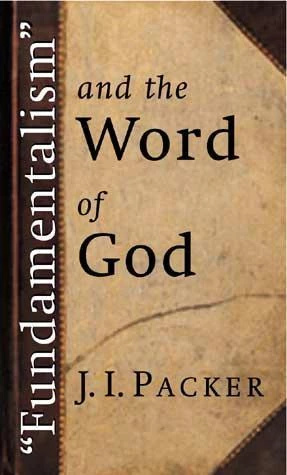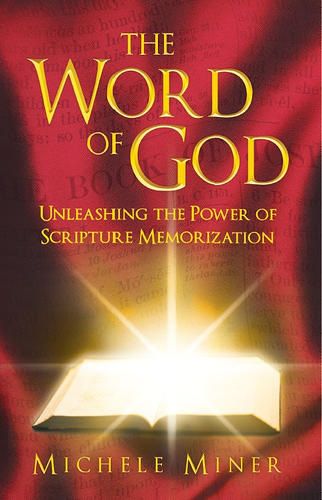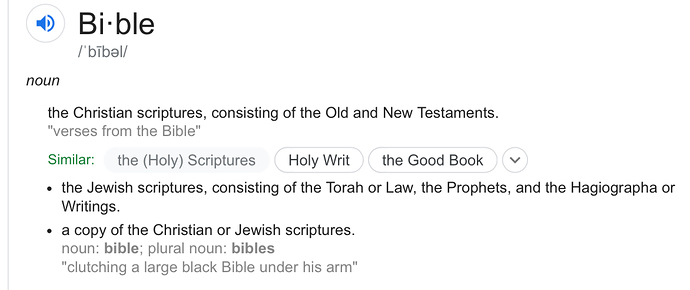AMEN. Thank you.
Well, if that is so, then at least I’m in good company, alongside Luke, Paul, Peter, John, the author of Hebrews, and Jesus himself who all also misused the term to mean something different than a Christological title…
for the sake of your tradition you have made void the word of God.
the place in which they were gathered together was shaken, and they were all filled with the Holy Spirit and continued to speak the word of God with boldness.
Or was it from you that the word of God came? Or are you the only ones it has reached? If anyone thinks that he is a prophet, or spiritual, he should acknowledge that the things I am writing to you are a command of the Lord.
And we also thank God constantly for this, that when you received the word of God, which you heard from us, you accepted it not as the word of men but as what it really is, the word of God.
Remember your leaders, those who spoke to you the word of God.
you have been born again, not of perishable seed but of imperishable, through the living and abiding word of God…The grass withers, and the flower falls, but the word of the Lord remains forever.” And this word is the good news that was preached to you.
SInce you are among a very tiny minority of people who see things this way, I suggested you form a club with the one other person I’ve ever seen espouse the same view.
In Greek there is rhema and there is logos. Neither mean “the Bible.” But if someone says, “we read in the Word of God that pride goes before a fall,” no one is confused about what the English in that sentence means. It means the Bible. No one but Roger thinks, I bet that person can’t tell the difference between Jesus and the Bible.
What’s that? I went to Fight Club once. Exciting! Got a few bruises.
I missed the beginning so I missed the introduction, the rules, and all that. But probably nothing important…
The confusion arises when we claim that the Word of God is our authority, or has all the answers for life, or sustains us, or whatever. All that stuff is true…but I think many people restrict “Word of God” to “the Bible,” in part to justify scripture wars and the legitimacy of their own interpretations.
I think also that “we” have reacted to the claims of other belief systems by pitting “their book” against “our book” as the true and highest revelation of God. But Christianity’s highest revelation of God is not the Bible (over against, say, the Qur’an), but Jesus himself.
Edit: at the same time, you can’t take every instance of “word of God” in scripture and substitute “Jesus” and have it make sense.
Well, interchanging the terms “Bible” and “Word of God” can be a dangerous error. Doesn’t being the Word of God imply inerrancy?
When people think of the Bible as the Word of God, and then find a minor error in the Bible, they may be led to doubting God. Daniel Wallace gave some good information on this topic in an interview. I will look for it and post it if I can find it.
In scripture, the term Word of God can mean:
- Jesus Christ
Or - A message from God for a specific person or group
Or - The message of God for mankind.
It does not refer to a set of documents canonized by the church.
To the extent declaring the writings of men and women (even if inspired) to be the “Word of God” creates and expectation of inerrancy, this interview with Dr. Daniel Wallace of Dallas Theological Seminary provides some insight:
An excerpt:
What I tell my students every year is that it is imperative that they pursue truth rather than protect their presuppositions. And they need to have a doctrinal taxonomy that distinguishes core beliefs from peripheral beliefs. When they place more peripheral doctrines such as inerrancy and verbal inspiration at the core, then when belief in these doctrines start to erode, it creates a domino effect: One falls down, they all fall down. It strikes me that something like this may be what happened to Bart Ehrman. His testimony in Misquoting Jesus discussed inerrancy as the prime mover in his studies. But when a glib comment from one of his conservative professors at Princeton was scribbled on a term paper, to the effect that perhaps the Bible is not inerrant, Ehrman’s faith began to crumble. One domino crashed into another until eventually he became ‘a fairly happy agnostic.’ I may be wrong about Ehrman’s own spiritual journey, but I have known too many students who have gone in that direction. The irony is that those who frontload their critical investigation of the text of the Bible with bibliological presuppositions often speak of a ‘slippery slope’ on which all theological convictions are tied to inerrancy. Their view is that if inerrancy goes, everything else begins to erode. I would say that if inerrancy is elevated to the status of a prime doctrine, that’s when one gets on a slippery slope. But if a student views doctrines as concentric circles, with the cardinal doctrines occupying the center, then if the more peripheral doctrines are challenged, this does not have an effect on the core.
Only if there is actually some confusion at a conceptual level between the Bible and the whole of God’s revelation, maybe. But I’m talking about standard English usage. I don’t think someone’s conventions about using Word of God as a synonym for Bible or their capitalization of Word in that usage tells you anything about their conceptual system, their views on inerrancy, their beliefs about the sufficiency of revelation in Scripture, their beliefs about religious hegemony, their beliefs about Jesus’ divinity, or anything else about their theology. It tells you how the Bible was conventionally referred to in their speech community.
I don’t think so. For instance, the Second Helvetic Confession that is popular within the Reformed church declares that “The preaching of the Word of God is the Word of God.” I doubt this was intended to claim that every sermon based on Scripture is inerrant.
Similarly, in the preface to the King James Version the translators claim that even the “meanest” (humblest) translation is the word of God. Nobody claims all translations are inerrant, but they still convey God’s word.
Do you have the direct quote from the preface of the KJV?
When Paul wrote, “bring me my cloak from Troas,” was that the Word of God or some words of Paul?
Here you go.
This is the modern English version from Bible (King James)/Preface - Wikisource, the free online library
I agree with their first statement, that it contains the Word of God.
The claim that the Bible is the Word of God has no justification in scripture.
I think the desire to elevate the Bible to, in its entirety, the “Word of God,” may be a reaction to the desire to have a “perfect source,” infallible in matters of faith and morals to counter the papacy.
I would say words of Paul that we find in the Word of God. Because Word of God in my dialect means Bible.
We aren’t talking about “a claim.” We are talking about English vocabulary. Calling the Christian scriptures “the Bible” has no justification in Scripture. Labels in a language don’t need justification from the original. What λόγος τοῦ Θεοῦ means in specific biblical context is a separate question and totally irrelevant to whether or not people use Word of God and God’s Word to mean Bible. English is determined by what English speakers mean when they use words, and in English Word of God means Bible. See these book covers as evidence.


Well, if you think Paul saying “bring my cloak from Troas” is the Word of God, we will not agree on that point.
I will add that I expect Paul would have been horrified by the escalation of his words to the “Word of God.”
Which dictionary defines, unambiguously, the Bible as the “Word of God?”
Aren’t dictionaries the arbiters of English vocabulary?
Not relevant. English is defined by English users and I just showed you multiple examples of how English users use the term Word of God to mean Bible. This is the stupidest argument I have had this week. I am done. Time for Netflix.
People use many words incorrectly. Sometimes to sell books.
If you think dictionaries are not the authorities in the use of the English vocabulary, then:
- We disagree and
- You invite confusion and misrepresentation into discussions, damaging communication.
While I study and love the scriptures, I am convinced making claims for the scriptures that they do not make for themselves is a way to cause damage to the kingdom of God.


